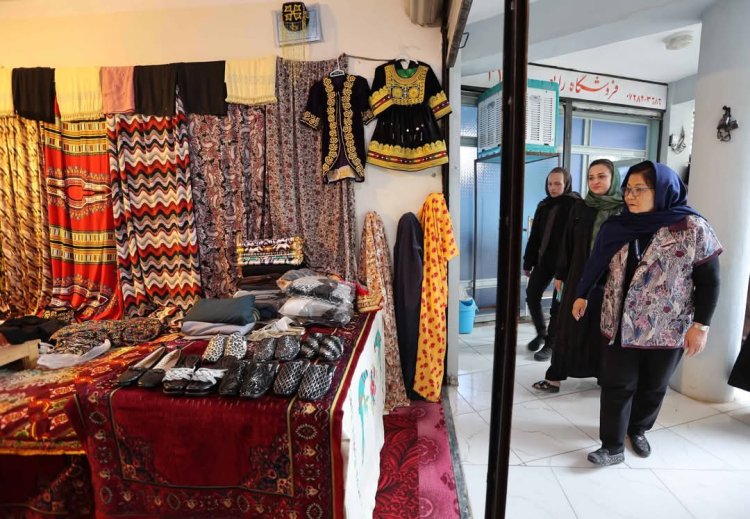Entrepreneurial Women in Faryab Call for Access to Uzbekistan’s Market

Following the sweeping bans imposed by the Taliban on women's work and education in Afghanistan, many women who were previously employed in government offices, educational institutions, and international organizations have turned to home-based businesses and small-scale production to make a living. However, social and economic restrictions—particularly the lack of access to large and international markets—remain significant obstacles to their entrepreneurial efforts.
The United Nations Assistance Mission in Afghanistan (UNAMA) reported that Roza Otunbayeva, the head of the mission, recently visited Faryab province and met with a group of women entrepreneurs. According to UNAMA, these women called for easier access to global markets, especially the Uzbekistan market, so they can sell their products on a larger scale.
UNAMA also reported that several of these women, supported by international organizations, expressed satisfaction with the relative growth of their businesses. The office reiterated its commitment to supporting Afghanistan’s economy, with a particular focus on women.
Major Shifts in Women’s Work After Taliban Restrictions
With the Taliban imposing widespread restrictions, women have effectively been excluded from government sectors, civil and international organizations, educational institutions, the media, and healthcare (except for some limited medical fields). Thousands of female teachers, university professors, civil servants, and journalists have lost their jobs and been pushed out of the country’s formal economy.
As a result, many women have turned to home-based and manual occupations. These include sewing and producing traditional clothing, embroidery, carpet and rug weaving, as well as preparing and selling homemade food such as bread, sweets, pickles, jams, and dairy products. Some women have also engaged in crafting traditional jewelry and decorative items. In remote and rural areas, many women are involved in agriculture and livestock farming.
Nevertheless, these small-scale businesses and home-based occupations are insufficient to meet their financial needs. The restrictions on women's work and education have dealt a severe blow to the economy. Many families that once relied on women’s income are now facing even greater poverty.
According to a global study published in January 2025, the Taliban’s restrictions on women’s education and employment are costing Afghanistan’s economy more than $1.4 billion annually.
